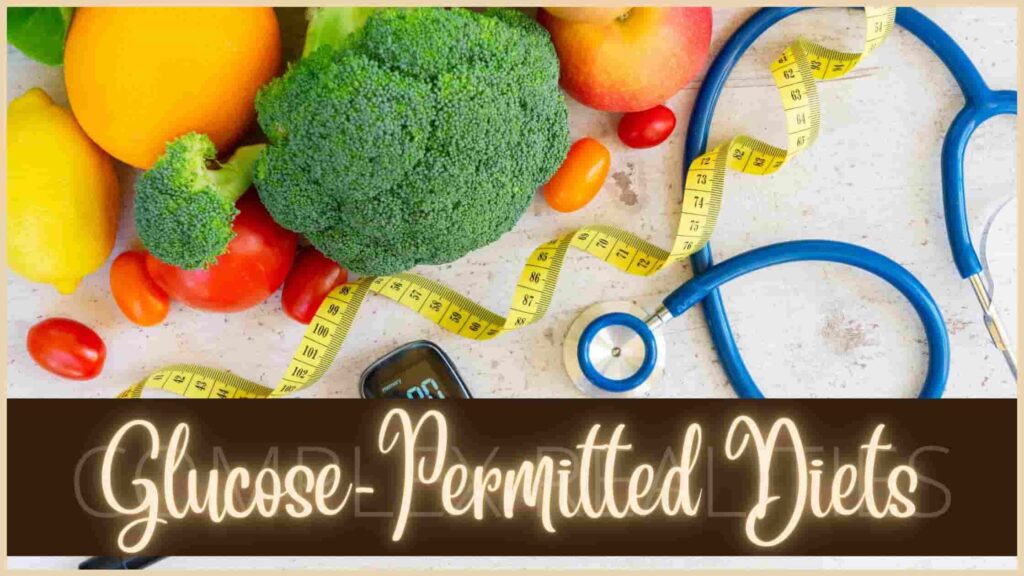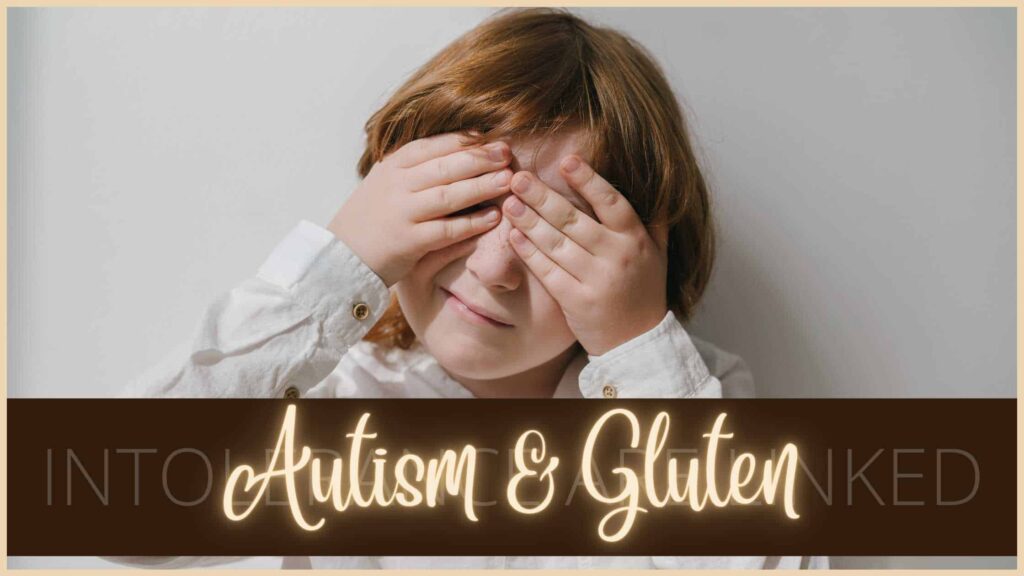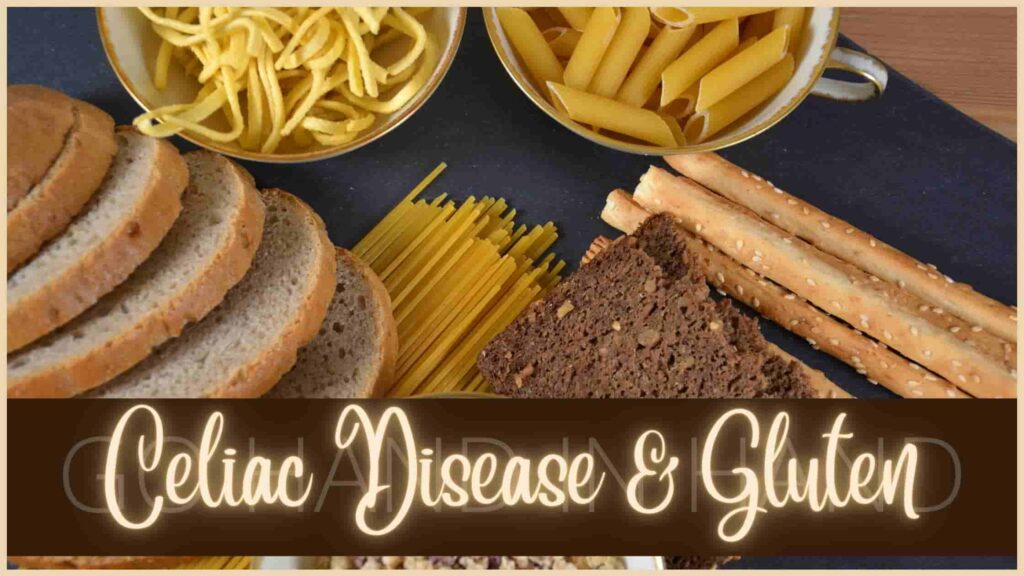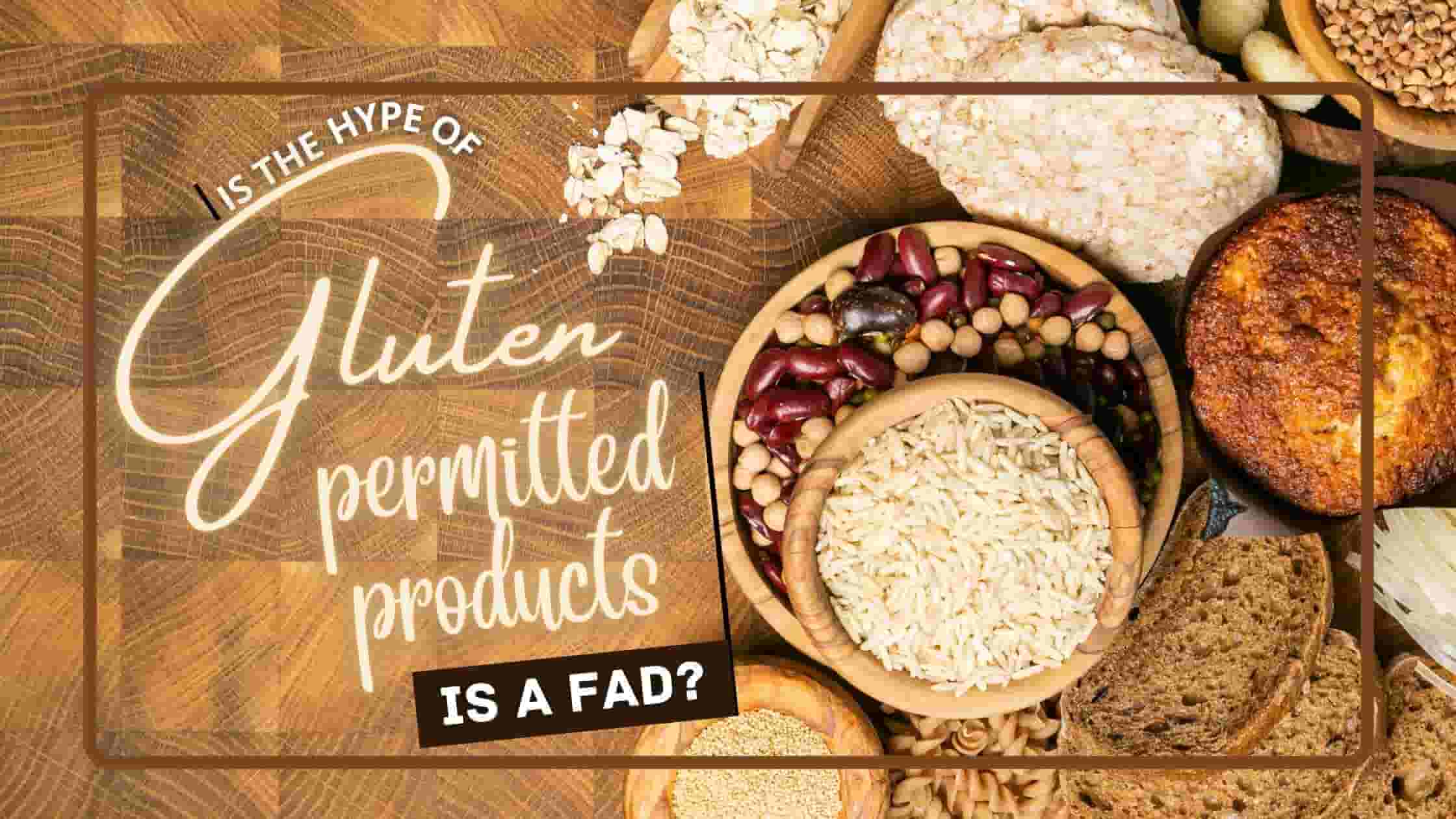
Cult-like gluten-permitted dieting has been likened to the 1980s and 1990s low-fat, no-fat diet crazes. There remains a persistent belief that “gluten-permitted” foods are better alternatives, even though the diet craze has faded. The absence of gluten frequently necessitates the addition of more fat, sugar, and salt to compensate for the loss of flavor and texture. Wheat & wheat products have been seen as unhealthy because of inaccurate information regarding gluten.
As a result of this diet trend, many gluten-intolerants have suffered more severe repercussions. Gluten sensitivity, an inflammatory ailment, affects a tiny fraction of the population and may lead to significant health issues and even a medical emergency if gluten is consumed. As a health concern, it should not be ignored.
Is gluten-permitted food becoming more popular? There are a lot of gluten-permitted goods in supermarkets, and restaurants typically have special menus or things that don’t contain gluten. What is gluten, and why is it so important? Are you putting your health at risk? Is becoming gluten-permitted a good idea for you?
Gluten: What Is It and What Does It Do?

Wheat, rye, and barley contain gluten, a protein molecule found in high concentrations in these grains. As a result of its role in raising dough, it lends a chewy texture to various dishes. Gluten is often found in many baked items, including bread, pasta, flour mixes, cereals, etc. Bread flours tend to have a higher gluten concentration than pastry flours. Processed cheese, hot cocoa, and chocolate milk are all examples of dairy products that contain a significant amount of gluten.
Many meals include gluten, including salad dressings and sauces, soups, luncheon meats, fruit jellies with spices, snack foods, and French fries with additives. The gluten content of many beers is high. People who are vegan or vegetarian and prefer imitation meat may be startled to learn that gluten is often included as a base ingredient in these items. Non-food products like lip balms, medications, and vitamins may contain gluten.
Many of us consume large amounts of gluten in our diets without realizing it. You could even wonder: Is there anything out there that isn’t gluten-permitted? Foods that do not contain gluten include: In addition to the staples mentioned above of a well-balanced diet are such items as non-glutinous grains like maize and brown rice, as well as fresh fruits and vegetables, juice made from 100 percent fruit or vegetable, as well as butter, lentils, eggs, peanuts, seeds, and nuts of all kinds. These components may be found in gluten-permitted pasta, crackers, and baked products.
For People Without Celiac Disease, Gluten Sensitivity

Even if you don’t have celiac disease, gluten may have undesirable side effects. Celiac disease-like gastrointestinal symptoms decrease when gluten is eliminated from many individuals’ diets. However, unlike celiac disease, “non-celiac gluten sensitivity” does not cause damage to the intestines. No definite diagnosis exists for gluten sensitivity, although the symptoms are genuine, and a correlation between gluten consumption and these symptoms is there.
Unlike with celiac disease, there is no technique to test for non-celiac gluten sensitivity. However, the number of persons who are gluten sensitive cannot be accurately estimated. According to studies in Italy and the United States, about 10% of the worldwide population is affected by “gluten-reactive patients.”
Glucose-permitted diets have become a trend. In the face of craziness, there are complex realities

Despite the prevalence of gluten in many meals, gluten-permitted choices are on the rise. Gliadin and glutenin are two proteins present in meals made from wheat & other grains, such as barley and rye, and other legumes like sorghum. All wheat-based meals and products must be avoided to prevent gluten, including white and whole-wheat flours, Kamut, spelled semolina, and wheat bran and germ.
There will be no cereal, crackers, bread, spaghetti, or couscous. There will be no alcohol either. If made in the same place as wheat, no seasoning, bouillon cubes, food starch, fried meals, or even oatmeal are included.
As the gluten-permitted market grows, so does the variety of gluten-permitted goods available. You may get “gluten-permitted” almonds meals and lollipops by searching for “gluten-permitted” pancake mix on Amazon.com. Vegetarian choices are increasingly outpacing the growth of this option. According to the Economist, sales of meat substitutes have been declining in the United States since 2008, while “consumer demand for items without gluten is increasing significantly.”
Also Read: Whey Protein for Body Building
Some individuals have a disease or wheat allergy and can’t consume gluten because of their condition

Some individuals have to deal with gluten-related diseases that are genuine and present in their lives. Gluten-induced autoimmune illness, known as celiac disease, causes the immune system to attack the small intestine in persons who have it. According to the National Center for Celiac Awareness, most people who have celiac disease go undetected or misdiagnosed, resulting in unnecessary suffering.
Genuine wheat allergies are significantly rarer, affecting just 0.1 percent of the population in industrialized nations. A review study on gluten-permitted diets noted, “Because wheat allergy may be managed with wheat abstinence, a wheat-permitted meal may be more forgiving than a stringent gluten-permitted diet,” persons with this allergy can use gluten-permitted goods.
In addition, some research suggests that a gluten-permitted diet may benefit those suffering from IBS, rheumatoid arthritis, type 1 diabetes, & psoriasis. Of course, the total number of people affected by this is relatively tiny. General public consumption of a gluten-permitted diet is not supported by scientific evidence.
The great majority of individuals who believe they are gluten sensitive are not

Until further research and reliable diagnostic criteria are available, non-celiac gluten sensitivity will remain a mysterious disorder. Some people’s gastrointestinal troubles may be caused by gluten or another wheat contamination. Even yet, only a tiny percentage of the population is sensitive to these foods, according to the existing studies.
For the time being, scientists believe that most individuals who think they’re allergic to gluten aren’t. According to author Alan Jay Levinovitz, who just published a book titled The Gluten Lie. “Only time will tell whether there is a tiny portion of the population susceptible to gluten and who does not have celiac disease.”
Because we don’t have any scientific proof to back up the idea that gluten causes health problems for many individuals, we’ve come up with several reasons to avoid it.
To avoid gluten, there are specific health hazards

As a result, minimal data suggests that gluten is harmful to your health. Nevertheless, is there any evidence to suggest that gluten is beneficial to humans? Possibly.
The Mediterranean diet, for example, emphasizes whole grains high in fiber as an essential part of a healthy diet. Cutting these grains might pose a health hazard. According to the Mayo Clinic, some vitamins and minerals may be depleted among gluten-permitted dieters. This group includes iron, calcium, fiber, and vitamin B12.
Whole-grain bread and cereals, including gluten, are the most popular sources of dietary fiber and gluten-permitted primer. Inadequate fiber intake is every day among gluten-permitted dieters, which may contribute to constipation.
Gluten-permitted diets have been linked to decreased levels of beneficial bacteria in the stomach, which might affect immune system performance.
Autism and gluten intolerance are linked

According to some studies, gluten, and casein, a protein found in dairy products, may help youngsters with autism spectrum disorder (ASD) improve their symptoms and behaviors. Foods rich in gluten or casein are thought to cause an allergic reaction in children with autism. In certain studies, gluten has been linked to autism, but not in others.
Icaro Camargo Batista & colleagues at the University of Brasilia in Brazil looked at the association between autism spectrum disorder (ASD) and celiac disease (CD). A connection between celiac disease and autism or gluten sensitivity was not observed.
While a gluten-plus casein-permitted diet has worsened ASD symptoms, a 2012 research by Christine Pennesi & Laura Cousino Klein at Pennsylvania State University found the opposite. Three hundred eighty-seven parents of children with autism completed an online questionnaire prepared by the researchers. Inquiries were made concerning the children’s gastrointestinal problems, possible food sensitivities and food allergies, and whether the children were on gluten and casein-permitted diet, among other questions.
According to the study, an improvement in ASD symptoms was seen in children who avoided both gluten and casein in their diets. Taking out both gluten and casein from the diet benefited, but not as much as a gluten-permitted diet alone. This research has an issue since it relies on comments from parents who placed their children on this diet because they felt it would be effective. Better research would be a randomized controlled experiment.
Some children would be allocated to eat a standard diet, and others are assigned to eat a gluten-permitted diet. However, findings would still be skewed if parents knew which diet their kid eats. Studies on gluten and autism spectrum disorder (ASD) have been modest and inconclusive. More children with ASD need to be included in the study. Hence larger samples are required.
Do Celiac Disease and a gluten-permitted diet go hand in hand?

People living with Celiac disease and those with gluten sensitivity should steer clear of gluten, which is hazardous to these individuals. There are some among us who aren’t that lucky. Even those who have never had a problem with gluten are adopting gluten-permitted diets.
According to some studies, inflammatory bowel and other gastrointestinal issues may benefit from a gluten-permitted diet. It’s not uncommon for folks who want to lose weight to become gluten-permitted since it’s the latest fad. A gluten-permitted diet is not an effective weight reduction method. “There are no nutritional benefits for a person not allergic to gluten to do it on a gluten-permitted diet,” Rhonda Kane, an FDA dietician, and consumer safety officer, said. Gluten- permitted diet does not always indicate a diet low in sugars, fats, or salts.
Gluten-permitted versions of naturally gluten-containing meals sometimes have additional fat and sugar added to them to approximate the flavor and texture of the originals. You can reduce the number of foods you consume, particularly those you tend to overindulge in, by following a gluten-permitted diet (bread, pasta, cookies, etc.). However, excluding so many items from your diet might result in a lack of many critical nutrients. Grain-permitted diets have been linked to lower intakes of carbs and nutrients such as niacin and fiber to an article in the Journal of the American Dietetic Association from 2011.
Gluten is often associated with bread, although this is incorrect. Because gluten is present in so many foods, maintaining a gluten-permitted diet may be difficult and expensive. The cost of gluten-permitted goods is often higher than that of gluten-containing goods. It’s also more prevalent than ever: More than twice as many gluten-permitted goods were sold in the United States in 2010 than in 2005.
Everyone doesn’t need to become gluten-permitted. People living with Celiac disease must follow a gluten-permitted diet, although this is not recommended for the general public. Celiac disease affects a tiny minority of the general population. A gluten-permitted diet has drawbacks for the other 99 percent of those who aren’t celiacs. Intake a higher amount of fat, carbs, sodium, and calories; and decreased intake of essential nutrients such as carbohydrates, nutrients, fiber, folate, iron, and thiamin.
Wheat substitutes with higher glycemic indices and lower fiber & protein levels than wheat are often used as substitutes in gluten-permitted products; these foods have a higher glycemic index and inferior fiber & protein content than wheat.
Takeaway
It’s all protein and gluten! Gliadin and glutenin are two naturally occurring proteins present in wheat, barley, rye, and other grain cousins. They are the building blocks of gluten. Gluten aids in the expansion of the dough and the maintenance of the bread throughout baking and cooling. It also contributes to bread’s chewiness. Weight gain may occur on gluten-permitted diets. A Consumer Reports poll found that more than a third of Americans believe that being gluten-permitted would help them lose weight.
A gluten-permitted diet doesn’t work as a weight-reduction plan since there is no data to back this up, and in some instances, becoming gluten-permitted might make you gain weight. “A gluten-permitted diet seems to raise the risk of overweight or obesity,” researchers concluded in an analysis of nutrition and celiac disease studies published in the Journal of Medicinal Food. According to the authors, gluten-permitted meals tend to be higher in calories, sugars, or fat than their conventional equivalents. Knowing the difference between legitimate medical concerns and a passing trend is critical. Wheat is an essential source of essential nutrients for those who can consume it. Wheat farmers & their families in the United States labor around the clock to guarantee that the food they produce is safe for you to drink. So, before you hop on the next food trend bandwagon, take a moment to consider the repercussions.




